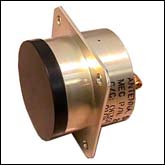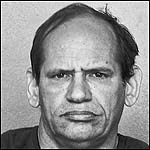 There have been about 10 million breathless newspaper articles on the recent indictment of Amin Ravan, an Iranian, in connection with his efforts to export certain military antennas from the United States to Iran through Singapore. Most of these articles just parrot the DOJ release, so I thought that some additional insight into the case might be useful at this point.
There have been about 10 million breathless newspaper articles on the recent indictment of Amin Ravan, an Iranian, in connection with his efforts to export certain military antennas from the United States to Iran through Singapore. Most of these articles just parrot the DOJ release, so I thought that some additional insight into the case might be useful at this point.
According to the indictment, Ravan and his company, IC Market Iran, both based in Iran, conspired with Corezing, a company in Singapore, and some of its employees, to obtain cavity backed spiral antennas listed on the United States Munitions List and ship them to Iran through Singapore. The indictment refers to the manufacturer of the antennas as “Company B,” but we know that the company in question is Midwest Engineering Corporation which we posted on here back in January 2012 in connection with the indictment of one that company’s employees who was involved in the scheme to ship antennas to Iran through Corezing in Singapore.
We noted in that post that four Corezing employees were awaiting extradition in Singapore. In August 2012, a court in Singapore denied extradition of two of the Corezing employees and permitted the extradition of the other two employees — Lim Kow Seng and Hia Soo Gan Benson, who are now named in the Ravan indictment
Since Ravan engaged in all of his activities in Iran, it was unlikely for about 234,656 reasons or more, that the U.S. could extradite him from Iran to stand charges on export violations in the United States. But lucky for us, Ravan traveled to Malaysia and was promptly arrested by Malaysian authorities there pursuant to a provisional arrest warrant issued by the United States under the extradition treaty between Malaysia and the United States. It is probably not unreasonable to speculate that some undercover action by the U.S. was used to lure him into Malaysia.
Whether or not Ravan can be extradited from Malaysia is a more difficult question. The extradition treaty permits extradition for an offense
if it is punishable under the laws in both Contracting States by deprivation of liberty for a period of more than one (1) year, or by a more severe penalty.
Assuming that the antenna is listed on the USML, this condition is satisfied with respect to the Arms Export Control Act. The Malaysian Strategic Trade Act of 2010 appears to adopt the Wassenaar List as its control list even though Malaysia is not part of the Wassenaar Arrangement, meaning that the antennas will likely be deemed as controlled under ML11 of that list. And as to the penalties, well the Strategic Trade Act provides for a minimum imprisonment of five years for violations and in some instances, involving arms, even the death penalty or life imprisonment are available penalties. (Let’s hope this doesn’t give anyone any bright ideas about amending U.S. export control laws to keep up with the Malaysians in this respect.)
The problem, however, is that the actions of which Ravan are accused occurred in 2006 and 2007 prior to the adoption of the Strategic Trade Act. In order to extradite Ravan, it appears that the Malaysian court will have to find that the Strategic Trade Act is retroactive, and I could find nothing to indicate that it is, but that is ultimately a question of Malaysian law. I suppose that if the Act imposes the death penalty for export violations it is not a huge leap to imagine that it might be retroactive as well.
 An FBI press release today announced the indictment of two Chinese citizens, both of whom are now in China and both of whom were in China at the time of the alleged criminal activity, for efforts to export programmable logic devices from the United States to China. The devices in question, presumably field programmable logic devices controlled under ECCN 3A001.a.2, were manufactured by Lattice Semiconductor Corporation of Hillsboro, Oregon.
An FBI press release today announced the indictment of two Chinese citizens, both of whom are now in China and both of whom were in China at the time of the alleged criminal activity, for efforts to export programmable logic devices from the United States to China. The devices in question, presumably field programmable logic devices controlled under ECCN 3A001.a.2, were manufactured by Lattice Semiconductor Corporation of Hillsboro, Oregon.
 Posted by
Posted by  Category:
Category: 


 There have been about 10 million breathless newspaper articles on the
There have been about 10 million breathless newspaper articles on the 
 A reader sent me
A reader sent me 

